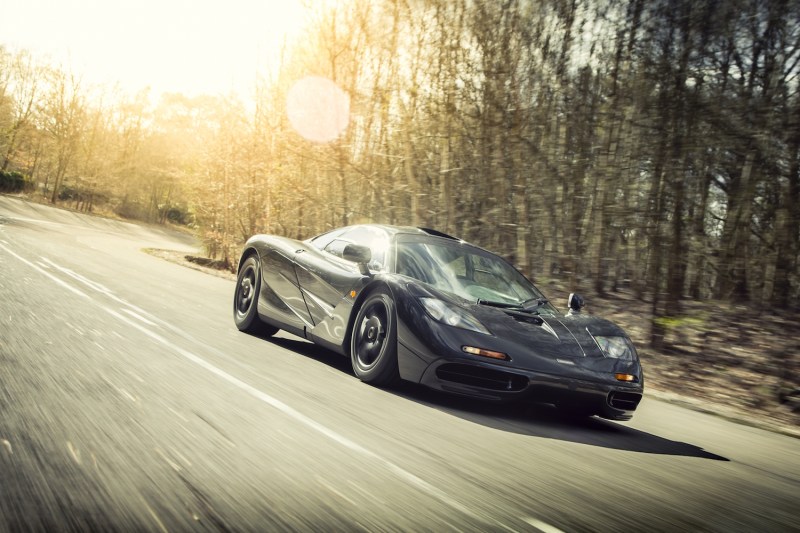Hopefully, you’ve been saving all your pennies, because McLaren just announced something worth spending all you’ve got: a low-mileage, perfectly maintained F1 supercar.
Only 64 street-legal McLaren F1s were built between the years of 1993 and 1998, and McLaren’s Special Operations Heritage unit is releasing one of the very last F1s ever produced for auction. Chassis No. 069 is in stunning condition and only registers 2,800 miles on its odometer, or what I’d like to consider “the break-in period.”
As a bit of history for those who need a refresher: The F1 was a piece of automotive innovation like no other in the mid-’90s. Designed to be the ultimate driver’s car, it features a midmounted, naturally aspirated 6.1-liter V12 with 627 horsepower. When tested, the F1 took the top speed crown with a record 242.8 mph run. Though the Bugatti Veyron eventually took the title — almost 20 years later — the F1 still is the fastest street-legal naturally aspirated production car.
Read More: Follow The Lineage of the Porsche 911 Through the Ages
In its final year of production, only six F1s were produced, which, when compared to today’s elite supercars, is like a pinch of salt out of a giant bowl. This particular model is the 60th model, hand-built in Woking, England, and painted in carbon black with 17.0-inch magnesium wheels.
The iconic center-driving position is detailed in black-and-red stitching, while the two passenger seats are covered in alcantara, a synthetic composite material. If the car itself doesn’t impress you, it comes with fitted luggage, a titanium tool kit, Facom tool books, all books and owners manuals, and a limited-edition McLaren F1 owner’s watch.
Though it’s unclear where the bidding will start on this piece of automotive history, don’t expect things to get interesting until somewhere beyond $2 million. Let’s just hope the new owners don’t simply tuck away their new possession in a garage but actually enjoy one of the finest vehicles ever built.







